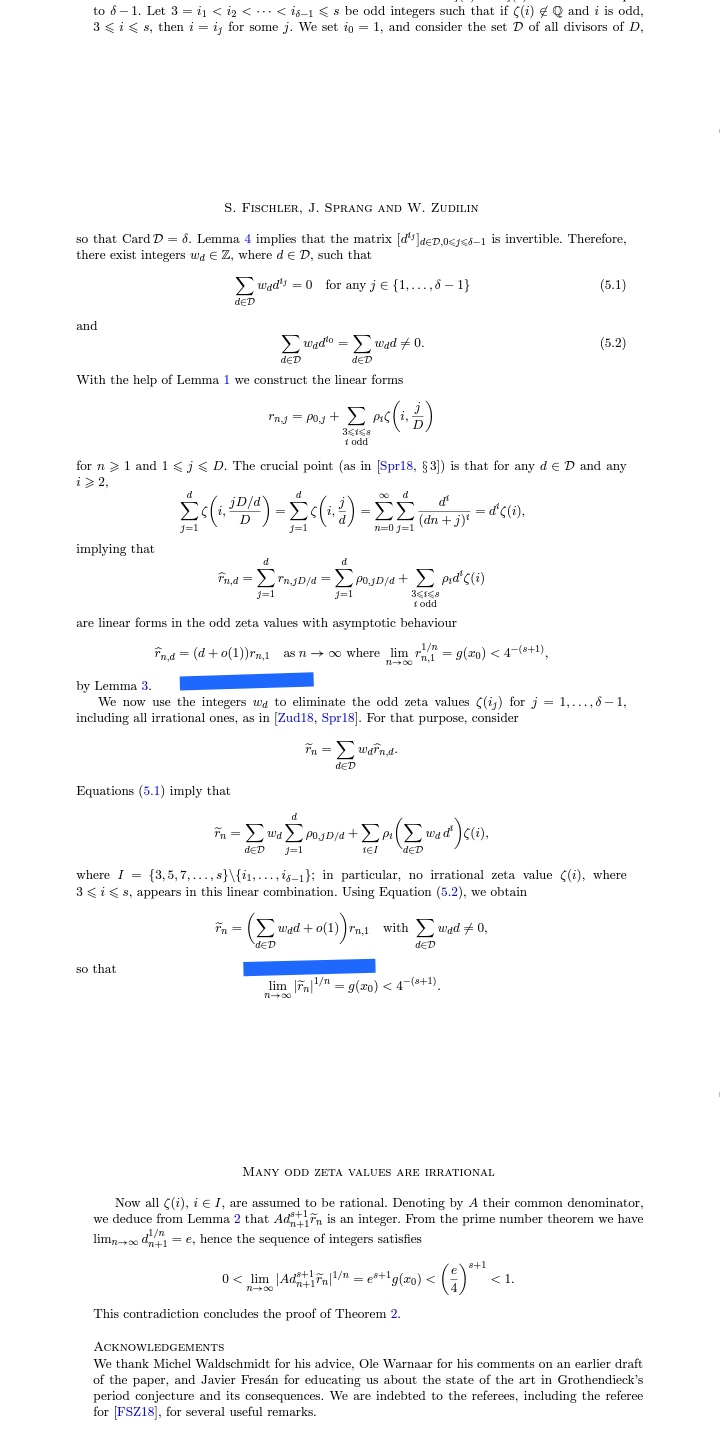I am a master's student interested in number theory. I am reading a research paper in Analytic Number theory which is "Many Odd zeta values are irrational" by Stephane Fischler, Johannes Sprang and Wadim Zudilin.
I have a question about article 5 of this research paper on page 14.
A screenshot of which is posted below:
In the highlighted part of screenshot screenshot I am unable to deduce
$ \hat{r}_{n, d} = ( d+o(1) ) r_{n, 1} $ as $n \rightarrow \infty$, and $\tilde{r}_n = \left(\sum_{d\epsilon D } w_d d +o(1) \right) r_{n,1} $
despite trying a lot.
Any help would be greatly appreciated.

